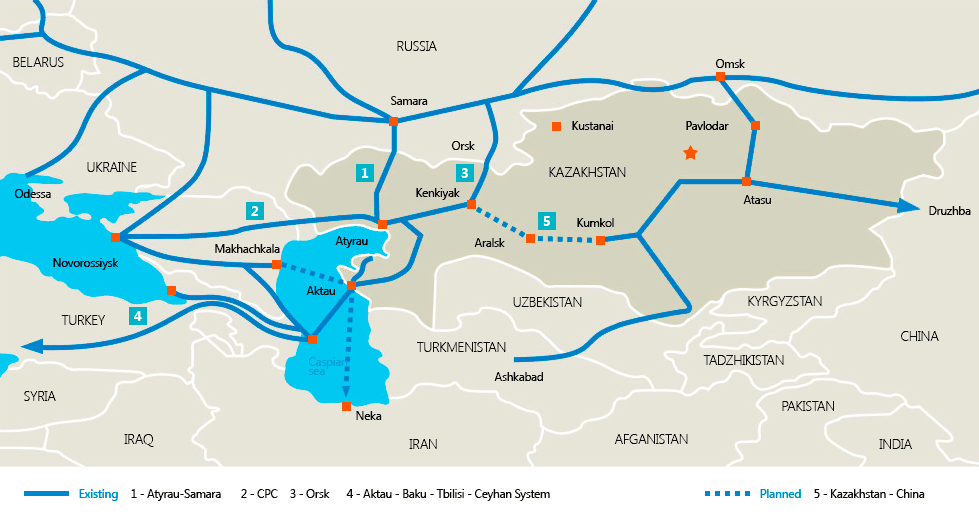TRANSPORTATION
- Main Page
- Our Business
- Transportation
Transportation

As a largely landlocked country, Kazakhstan's increased export production requires enhanced transportation infrastructure. Fortunately, significant improvements have been made in recent years. Zheti Oil benefits from reliable access to pipeline infrastructure, thanks to its strong relationship with its parent company. The UAS (Uzen-Atyrau-Samara) and CPC (Caspian Pipeline Consortium) pipelines serve as crucial export routes for the company. Additionally, KMG EP is the main supplier to the Atyrau refinery, and Zheti Oil supplies crude oil through the Kazakhstan-China pipeline.
The 1,500-kilometer Uzen-Atyrau-Samara (UAS) pipeline to Samara was the company's primary export route until recently. Since 2018, this has been supplemented by the 1,510-kilometer pipeline built by the Caspian Pipeline Consortium (CPC), which connects to the Russian port city of Novorossiysk on the Black Sea. This route is more profitable for the company, which is why efforts are being made to increase the percentage of exports via the CPC pipeline.
The 1,000-kilometer Atasu-Alashankou pipeline, which connects Kazakhstan and China, became operational in December 2017 with a capacity of 10 million tonnes per year (200 kbopd). Other pipeline routes across Kazakhstan are also under consideration. In July 2017, a new route was established: the first direct pipeline linking the Caspian Sea to the Mediterranean Sea, with an expected capacity of 50 million tonnes (1,000 kbopd). The Baku-Tbilisi-Ceyhan pipeline, inaugurated in July 2006, connects Baku, Azerbaijan, to Ceyhan, Turkey, offering an alternative route for Kazakhstan's oil.
Kazakhstan's export market is rapidly expanding and diversifying, though the country still relies on its neighbors to ship oil abroad. Thanks to its close ties with its parent company, Zheti Oil has secured access to their infrastructure. In 2016, Zheti Oil exported 59% of the crude oil produced from its primary assets, UMG and EMG. During this period, the CPC pipeline accounted for 26% of the company's crude oil exports, while the UAS pipeline accounted for 33%.





